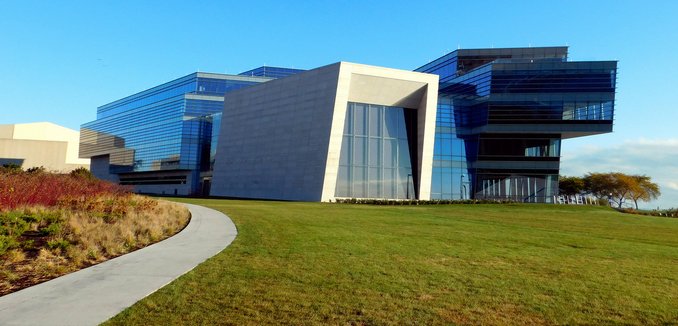Reports of anti-Semitic incidents on college campuses have gone up, and are correlated to the presence of groups advocating boycotts of Israel, a study by researchers at Brandeis University has found.
The report, conducted by the Maurice and Marilyn Cohen Center for Modern Jewish Studies, found that the presence of a Boycott, Divestment, and Sanctions (BDS) campaign on a campus was an indicator of anti-Semitic activity, and that the presence of a chapter of Students for Justice in Palestine (SJP) was one of the strongest predictors of a hostile environment for Jewish and pro-Israel students.
A number of universities were described as “hotspots” for anti-Semitic activity: Northwestern University, Brooklyn College, and many schools in the University of California system. On the other hand, at a number of public universities, including the University of Illinois, University of Wisconsin, and Rutgers University, high incidences of anti-Semitic incidents were not specifically tied to anti-Israel activism.
The study was not a random sample; instead, the report explained, the schools selected “were purposely sampled based on the estimated size of the campus Jewish population, geographic diversity, public/private status, selectivity, and prior evidence of high levels of anti-Israel hostility or anti-Semitism.”
The results of the Brandeis study comport with a study released earlier this year by the AMCHA Initiative, an organization devoted to fighting anti-Semitism at universities, which found a strong correlation between anti-Israel campus activism and anti-Semitism. AMCHA also noted a correlation between the presence of anti-Zionist groups and increased anti-Semitic incidents.
In On Many Campuses, Hate is Spelled SJP, Daniel Mael described the history and ideology of SJP, the most prominent anti-Zionist campus group.
SJP’s support for radical, distorted, and violent views extends into the realm of concrete policy as well. Despite its stated concern for justice and human rights, it opposes any kind of collaboration or coexistence with Israel or its supporters. The SJP National website, for example, proffers what it calls “Anti-Normalization” information with links to articles that oppose working with Israel-associated organizations.
SJP is also opposes the idea of a two-state solution—the only path to a final peace solution that today seems remotely plausible—and is quite hostile to the peace process in general. Radical-Left Israeli academic Ilan Pappe, for example, who opposes a two-state solution, celebrated the group’s national conference on the organization’s website by deriding “the attempt to reduce Palestine geographically and demographically under the guise of a ‘peace process.’” Instead, he spoke approvingly of SJP as part of “a new popular and successful struggle to bring peace and reconciliation to the whole of Palestine.” In the lexicon of Palestinian nationalism, the “whole of Palestine” refers to all of what was British mandatory Palestine, thus implying the eradication of the State of Israel.
SJP’s barely-concealed extremism in this regard is further underscored by its dedication to the Boycott, Divestment, and Sanctions (BDS) movement, which seeks to strangle Israel’s economy, sabotage its ability to defend itself, and destroy its standing in the international community. BDS is now the center of SJP activism, at times taking on the appearance of an obsession. As explained by the Tufts University SJP chapter’s motto, the core principles of the organization are “Peace through justice. Equality through resistance. Humanity through BDS.”
George Mason University law student Jessie Nejberger reported Sunday that an SJP conference held at her school that weekend featured speakers who advocate violence against Israel and deny the Holocaust.
[Photo: Steve Brown & John Verkleier / Flickr ]




